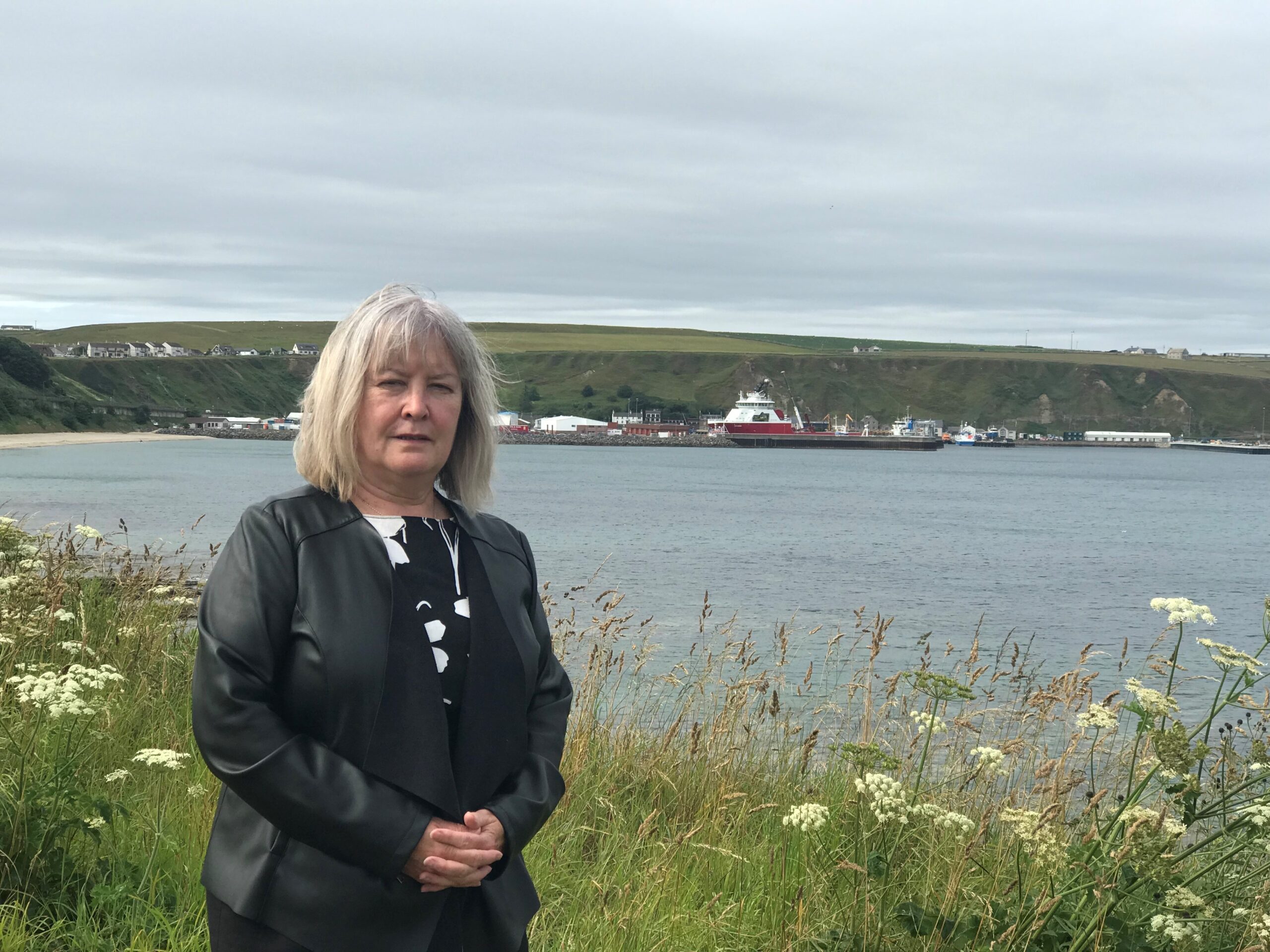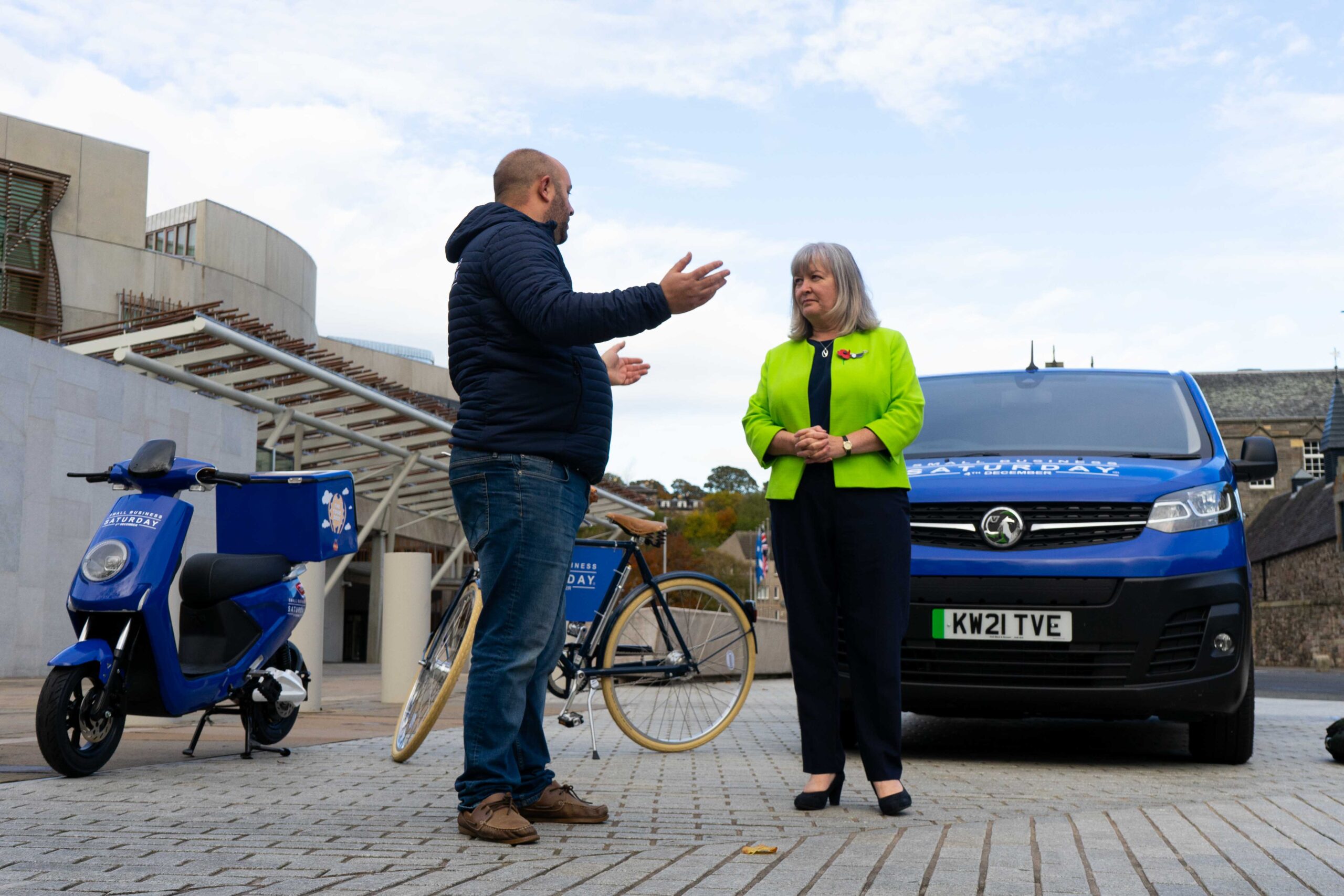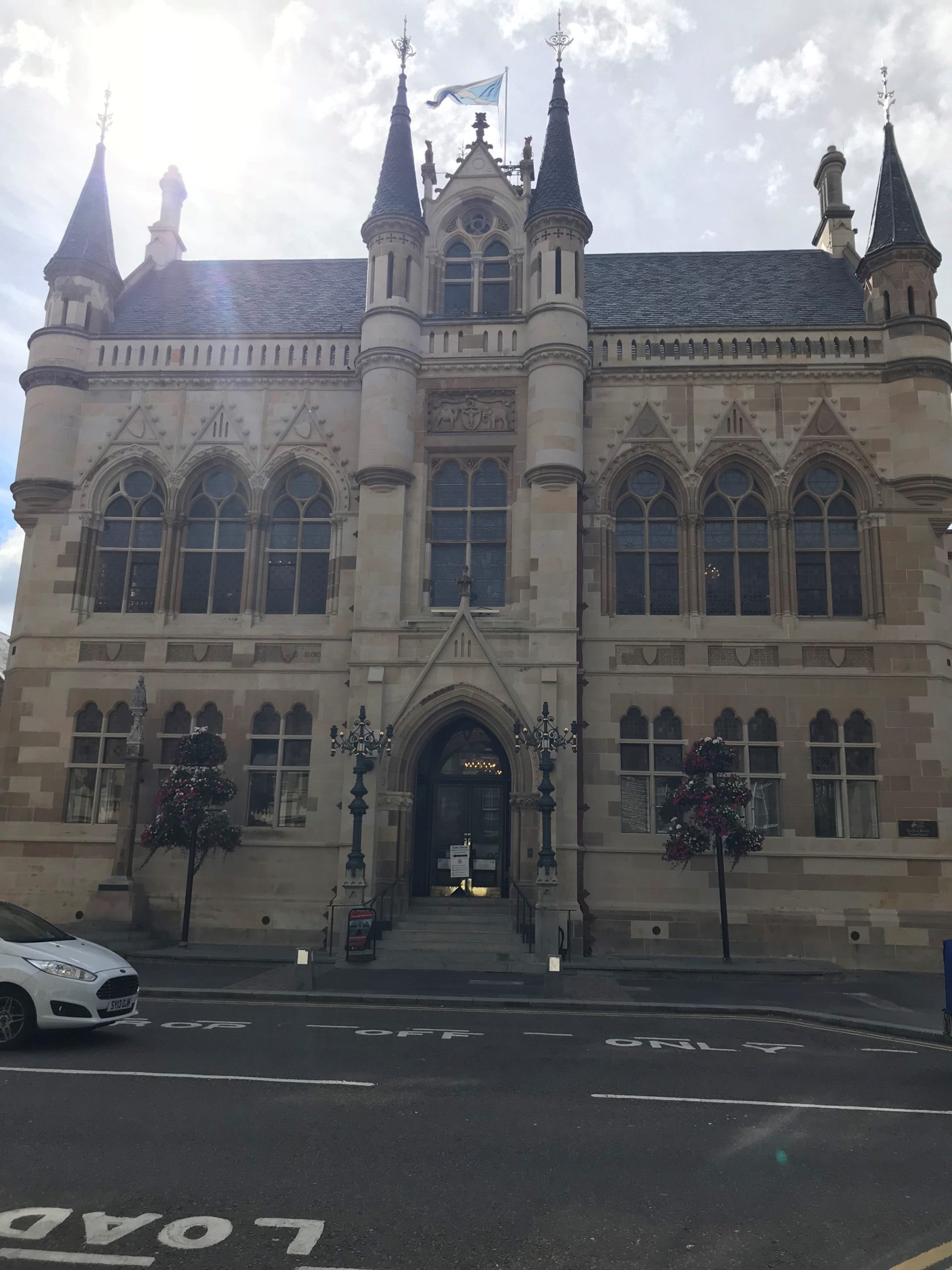The Scottish Government’s Minister for Zero Carbon Buildings has admitted that there is a shortage of registered Green Deal installers in the region to carry out energy efficiency improvements in people’s homes.
Patrick Harvie, who is also the Scottish Greens co-leader, was replying to Highlands and Islands Labour MSP, Rhoda Grant, who took up a complaint from a constituent about the issue.
Home Energy Scotland highlights energy efficiency Improvements with loans and cashback for work on heating and home insulation.
However, Gavin Anderson, from Ullapool, contacted Mrs Grant to say the system wasn’t working.
He said: “We were hoping to apply for this but were shocked to find that for key areas of support there is not one registered installer in the Highlands and having contacted installers outside the Highlands we find that they are not willing to work in the Highlands.
“We live in the coldest area of Scotland and are effectively being excluded from this support scheme because of a huge gap in the supply chain.
“We asked Home Energy Scotland, who supports the grant scheme, and they admitted that it is unlikely that there will be installers registered within the near future.
“This means that households in the Highlands are excluded from £15,000 loan support (with up to £5000 cash back) for insulating our homes while households in all other parts of Scotland can access this support.”
Mr Anderson used the search engine, Green Deal Participant Register – Green Deal ORB (beis.gov.uk) and found there were hardly any installers in the Highlands, including Inverness, in most areas where support could be applied for including cavity wall installation, draught proofing, external wall installation, roof insulation and room in-roof insulation.
Home Energy Scotland told Mrs Grant that finding a certified installer in the Highlands and Islands could be “very difficult”.
Although householders can appeal to the Scottish Government to use a non-Green Deal installer, granting an exemption cannot be guaranteed.
“Householders in the region are more in need of green home energy improvements due to the colder weather and, in some villages and towns, the age of their homes,” said Mrs Grant.
“So, I get exasperated about these Government schemes that encourage people to apply for help, because much of the time the Highlands and Islands is forgotten about.
“It’s just another example of Ministers almost writing off the region and it is so, so frustrating. Waiting until 2022 for more information on how we can skill up our own workforce is just so annoying for those wanting to upgrade.
“Saving the environment is hitting the headlines with COP26 but again there’s more obstacles in the way of those who are trying to be greener.
“The SNP/Green coalition agreement will now only fund heat pumps, no longer funding oil. These pumps need good insulation so a double whammy.”
Mr Harvie said: “I can confirm that we are aware of the shortage of registered Green Deal installers covering the more rural and isolated areas of Scotland. Skills and consumer protection is at the heart of our schemes and we are continuing to work with sector skill bodies, trade bodies and other key stakeholders to enable companies to develop the skill requirements needed for energy efficiency.
“Further information on this work will be released in 2022. In situations where applicants for the Home Energy Scotland Loans are having difficulties locating a registered installer, we continue to monitor this situation.”
He went on to say that non-registered installers could be taken on by householders, in exceptional circumstances through an appeal process, but it would be on a case-by-case basis.
“As long as the non-registered installer is providing value for money, a very important point for the customer, and an adequate warranty/guarantee on the work to be done, the request may be approved,” he added.
Home Energy Scotland, managed by the Energy Saving Trust and funded by the Scottish Government, said that it was “working closely with the Scottish Government to help support the capacity and availability of approved installers in remoter areas of the country.”
It added that Green Deal certification was likely to be replaced in the future as the necessary certification for public funding schemes, however the timing and details of this are yet to be confirmed. In the meantime, its Sustainable Energy Supply Chain programme was engaging with installers in the Highlands and Islands to address the challenges they face, particularly around certification and training. It was working to support the development of a strong local supply chain in the region to deliver both energy efficiency improvements to the fabric of buildings and low and zero emissions heating systems such as heat pumps.
MSP Rhoda Grant says frustrated constituent highlights gaps in rural connectivity
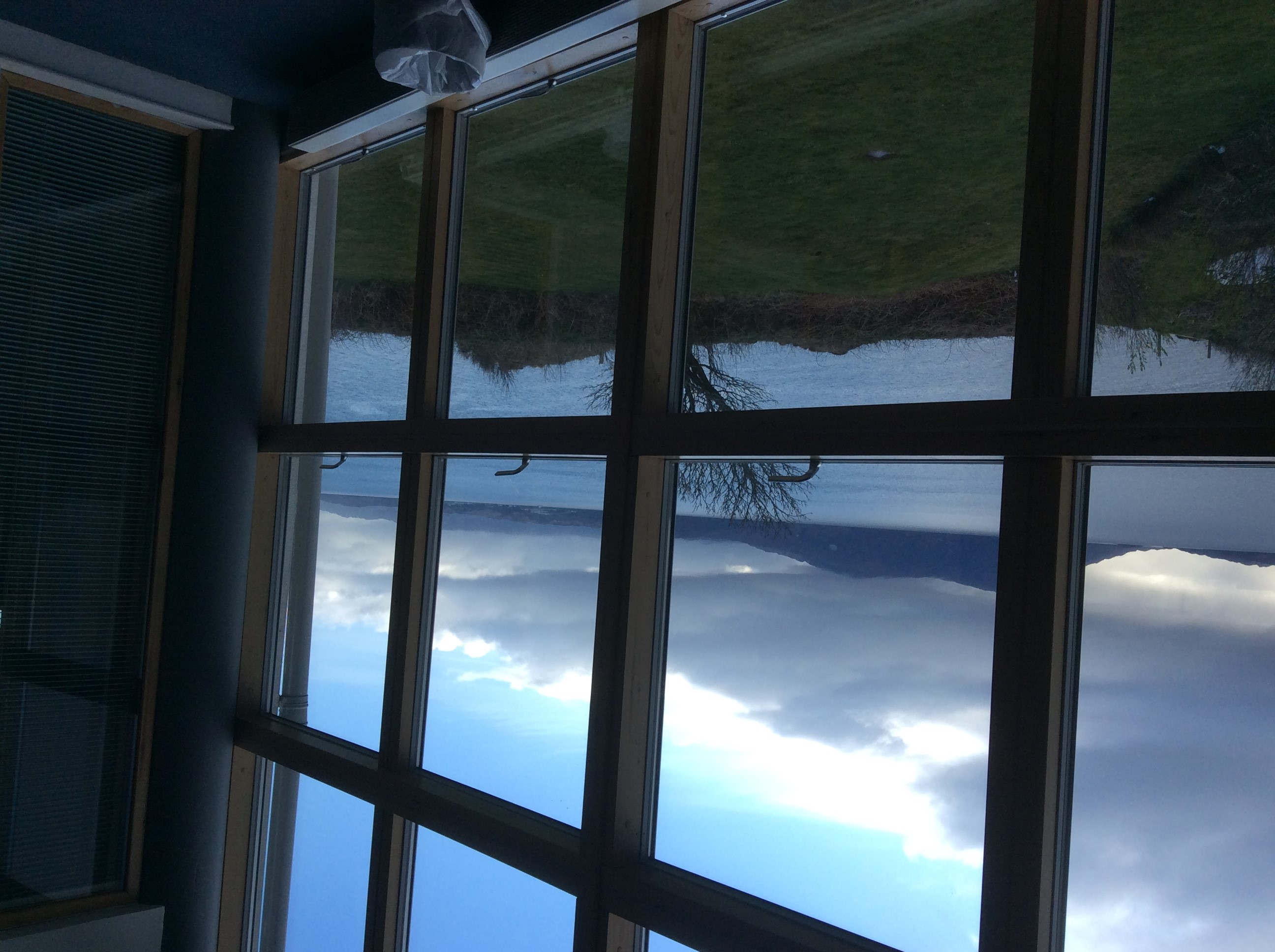
Highlands and Islands Labour MSP, Rhoda Grant, has challenged mobile phone companies and the Scottish Government to look seriously at the lack of connectivity in the region after investigating one constituent’s frustrating case.
Sally Semple, of Drumbuidhe, Morvern, contacted Mrs Grant saying there was “evidence of gaps and deterioration in service” which still existed in the Highlands despite the Scottish 4G Infill programme.
Mrs Grant said: “Sally’s case highlights that there needs to be some more joined up thinking about how people live in rural areas and how to service their needs. I see the frustration that many constituents suffer highlighted in this one case.”
Ms Semple explained she lived in a remote cottage six miles from the nearest public road and from the nearest neighbour, with no electrical connection or landline telephone service.
She explained her cottage was on Loch na Droma Buidhe and there was no consistent mobile reception in the loch. For over 20 years, her family had used a Vodafone telephone number which was accessed via a fixed cellular terminal attached to an antenna (pointed towards the Glengorm transmitter above Tobermory).
Ms Semple, who is a Senior Technical Advisor in the Directorate of Energy & Climate Change, said: “Given my location, the combination of an antenna and a fixed cellular terminal has been an invaluable resource for the folk working and travelling through this remote area. The door to my office where the phone is located has always been open for folk to use in an emergency.”
However, she told the MSP that from April this year the phone system stopped working and the company eventually told her it was unable to provide a service to her location, but she never received an explanation of what had changed, nor had managed to cancel her service or receive compensation.
Mrs Grant, who has campaigned for more than a decade on the need for better digital connectivity, investigated. Ms Semple did then get to cancel her service and received compensation and then signed up for Wi-fi calling with a different operator.
Vodafone told Mrs Grant that it had not shut down any sites in the area but was stopping its Sure Signal devices to replace with WiFi calling using an internet connection, but the MSP noted that Ms Semple had never used Sure Signal and the company did not explain the lack of service to the location.
Ms Semple told the MSP: “However the remote nature of my home means that my internet connection is provided via satellite which comes with its own issues regarding time delays and the financial fragility of suppliers.
“I also do not have an electrical grid connection (I have a diesel generator) so power cuts are common. Being able to make phone calls using the mobile phone network (albeit with an amplified signal) was a key factor that allowed my family to use our home and to provide communication and help to those who pass by. I remain nervous that communication over the internet will be able to replace the signal from Glengorm in all circumstances.”
She also added that her phone would no longer be available to people passing by and she had been working from her Edinburgh office due to connection difficulties.
Finance Secretary, Kate Forbes, also provided an update on the Government’s 4G Infill programme which provides new mobile masts to rural communities.
Ms Semple added: “I spent a good portion of the summer waving a phone with a specially purchased EE sim card at the newly constructed Glenborradale mast on the opposite shore of Loch Sunart but with no luck. I will keep trying. I also note that there is a proposed mast in the vicinity of Kilchoan which may well provide future reception.”
Mrs Grant said: “Sally’s case highlighted that some fixes weren’t suitable for her location – the Scottish Government’s offer of a superfast broadband voucher was not needed as she is connected to the best available supplier in her location and she does have satellite broadband.
“Sally is also on her third supplier in the last five years as each has gone bust and a physical internet connection is out of the question as in 2008 the SSE quotation for providing electricity was about £400,000!
“And there are issues for her such as a time delay on calls, variable data speeds leading to lengthy times to access files and on-line meetings some of which have been abandoned.
“It’s fine for public bodies and companies to encourage people to work from home, especially as a result of the pandemic, but we do need the services to help them.
Small Business Saturday
I was delighted to support Small Business Saturday UK when they called at the Parliament last week to kick off their zero emissions Tour of the UK.
This is part of the countdown to Small Business Saturday on 4 December, to celebrate and support small businesses across the country.
This year, more than ever, our small businesses need our support. They contribute so much to the economy of the country and, crucially, provide much needed local jobs and services.
Let’s all show them we care and get behind the campaign to show our support.
Grant asks for answers to unprecedented pressure facing NHS staff
With increasing burdens mounting on NHS staff, Highlands and Islands Labour MSP, Rhoda Grant, today asked the Health Secretary what assistance the Scottish Government was providing to NHS boards that were currently experiencing pressures ahead of winter.
Humza Yousaf, rehashed his announcement of 5th October which reiterated that the NHS will ‘remain on an emergency footing until at least 31 March next year.’
Speaking in Parliament, Mrs Grant highlighted that “There are many concerns around the Covid vaccine roll out, boosters and take up of flu vaccinations at a time when health boards are grappling with additional staff shortages and increasing resignations.
“In my own region GPs in Alness and Invergordon have notified NHS Highland that they will be handing back their contract from early next year.
“What is the Scottish Government doing to support GPs and Health Boards who are facing unprecedented pressure, even before winter pressures set in?”
The Cabinet Secretary said he couldn’t divorce the impact of the pandemic from other pressures placed on the NHS and assured that the additional winter funding announced on the 5th October would include a significant amount of investment including primary care.
After the meeting Mrs Grant said: “Despite the Health Secretary’s assurances on liaising with the BMA and an expected ‘increase in GP face-to-face appointments’ there is a growing concern regarding the future resignations of GPs within the Highlands and Islands.
“This follows on from yesterday’s announcement from NHS Highland that they will take over the running of Alness and Invergordon medical practice from April 2022.
“Mr Yousaf avoided answering the local question which gives me the impression he’s not interested in the problems of delivering health care in our mostly rural Highlands and Islands.”
MSP Rhoda Grant’s reply to constituents concerned about local services
Rhoda Grant recently received letters from constituents worried about local services. This is her reply. Rhoda is also a member of Unison.
Dear constituents
Scottish Labour have enthusiastically supported Unison’s calls for a fair pay deal for public service workers both within local authorities and in the Scottish Parliament, and support the Plug the Gap campaign which calls for proper long term financial support for our local authorities and the people who work for them.
Local councils and the people who work in them have spent the pandemic doing a heroic job; keeping our vital services going and our most vulnerable people safe through hugely difficult circumstances. The way in which public services workers threw themselves into protecting and helping us has been humbling.
Councils kept our bins being collected, our older people safe and fed, many of our houses over our heads, kids learning at home, and our most vulnerable people cared for. They did this in the context of staff shortages, long hours, and a funding system that they could not rely upon.
The SNP Government has presided over more than a decade of chronic underfunding for our local councils. It refuses to pass on the funding they have received for this, and it has led to £937m of cuts to non-core funding. This has a direct effect on councils’ ability to continue providing essential services, and to protect public sector jobs.
When the pandemic hit, the SNP were slow to confirm the extra funding provided by the UK government, and late to confirm when and how much extra funding Councils received. This made long term planning impossible, and led to many authorities using reserve funds to finance vital services.
Scottish Labour agree that local government should have long term funding plans through a fiscal framework with the Scottish Government and that the resources must be there so that all staff who deliver essential public services should be paid at least the Scottish Living Wage.
Scottish local authorities also face a continued squeeze on capital resources from the government. At its peak, 27% of Scottish government funding went to local councils. Now, that figure has reduced to 12%. This is set to worsen, because there are no increases planned for the next 5 years, which represents a real terms cut to income.
Less capital funding means less investment in key infrastructure such as schools, housing or community renewal. The Scottish Government must leave councils in a financial position to build back better for our communities.
In the Parliament Scottish Labour MSPs regularly argue for an end to local government cuts and have repeatedly pressed Ministers for increased local government funding and workers’ pay during Budget negotiations. In our local communities Labour councillors and activists are campaigning for improved treatment of local authority staff and to save local services like libraries from SNP closures.
Social care workers risk exposure to Covid every day to care for people who depend on them for support. They have done a heroic job in the face of hugely difficult circumstances. They are the people who put themselves in danger to look after our family and friends when they need them the most, yet they have had to fight for equal treatment and protection throughout the pandemic. Scottish Labour believe it is time the social care workforce was properly valued and that the Government should deliver £15 an hour for our local social care COVID heroes.
Kind Regards
Rhoda
MSP Rhoda Grant’s reply to constituents’ standard letters on Uplands
Dear Constituent:
“Thank you so much for getting in touch about Scotland’s uplands. They are a unique and precious part of Scotland’s landscape and we must do everything we can to support them in a way that works for people, wildlife and the climate. As you say, the protection of raptors must be central to this. Scottish Labour is committed to more effective monitoring of raptor conservation and stronger penalties for those who persecute our raptors.
Scottish Labour has also called for more land to be in the hands of local communities to help create a fairer, sustainable Scotland. We support legislation to ensure that no one individual can acquire large swathes of Scotland’s land and prevent land ownership via offshore tax-havens. We have called for increased funding for the Scottish Land Fund and interventions when land is not used in ways that serve the public interest. Public sector agencies should also be enabled to participate in land markets with the aim of transferring the land into local vehicles of sustainable local ownership, as a basis for local wealth building and income retention.
I share the importance you place on the return of natural woodlands and bogs in prime condition. Scottish Labour supports planting at least 15,000 hectares of trees a year and increasing peatland restoration to 20,000 hectares each year, alongside measures to end commercial peat extraction. At least 50% of all woodland expansion should be with native species and at least 10% delivered through natural regeneration.
These actions would support sustainable employment in rural areas. We have called for the establishment of a Scottish Conservation Corps, modelled on the Civilian Conservation Corps of the New Deal, to employ and train a new workforce dedicated to restoring Scotland’s natural environment. This could employ up to 10,000 people.
With the right vision and commitment we can ensure Scotland’s uplands work for people as well as wildlife and the climate, and I will continue to be a strong voice in parliament for change.
Yours sincerely,
Rhoda
Rhoda Grant’s letter back to constituents about Assisted Dying
Due to the number of emails MSP Rhoda Grant is receiving on certain issues, her response to some campaigns will be publicly available on this website. This is Rhoda’s reply to constituents asking about Assisted Dying:
Dear Constituent,
Thank you for your email regarding assisted dying in Scotland.
Lib-Dem MSP Liam McArthur has now lodged his Assisted Dying Member’s Bill with his consultation running until December.
Past parliamentary votes on assisted dying have been free votes and any future votes would likely be the same, giving MSPs the freedom to choose how they vote without following a Party line.
I sat on a previous Health Committee considering similar legislation and had the opportunity to scrutinise all the arguments.
I voted against previous Bills and, while I will listen to the arguments again, I have not heard anything that has changed my mind. It became clear to me that what was required was a right to palliative care, something sadly missing in Scotland today. I have also continued to work on ensuring that everyone has a right to die at home with appropriate palliative care.
At the start of the pandemic it became very clear to me that very different values were placed on lives. Disabled people and older people were being actively persuaded to sign “Do Not Resuscitate” forms and there was a general understanding that they would not be admitted to hospital for life saving care if they contracted Covid-19.
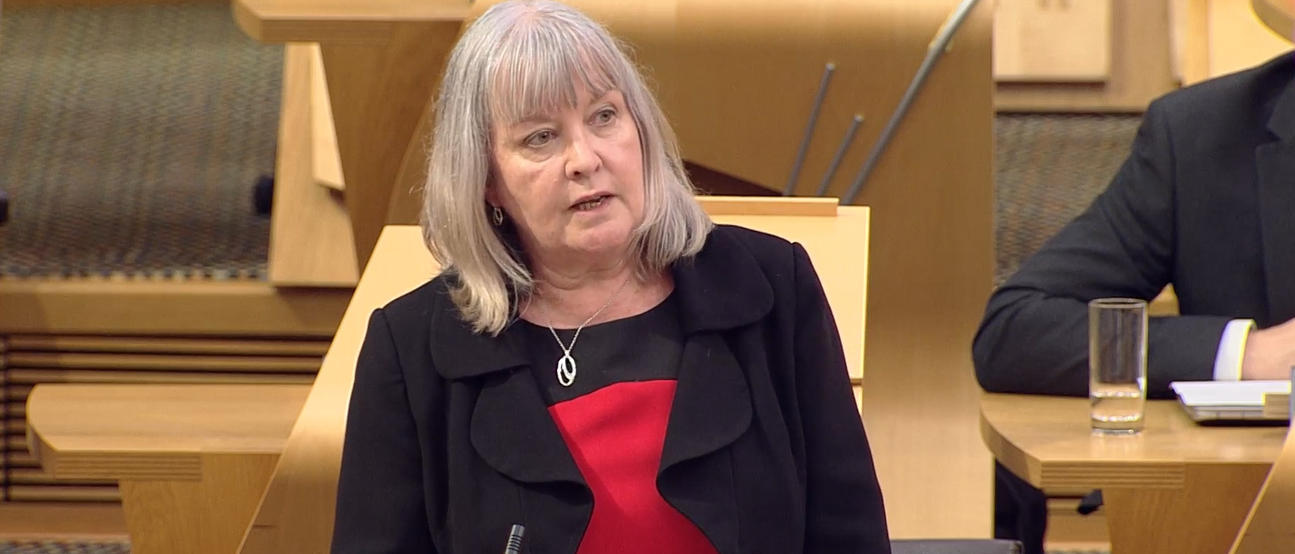 Therefore, as a society I do not believe we have the underlying values that would protect the most vulnerable if such legislation were enacted.
Therefore, as a society I do not believe we have the underlying values that would protect the most vulnerable if such legislation were enacted.
Kind regards
Rhoda
Increase Winter Fuel Payment to help 49,774 people in the Highlands and Islands
Regional MSP, Rhoda Grant, has called on the SNP to take up Scottish Labour’s plans to expand the Winter Fuel Payment, after new figures revealed it could help up to 49,774 people in the Highlands and Islands.
Last week Scottish Labour called on the government to introduce a £70 winter fuel supplement for low-income pensioners and struggling families, as the cost of living crisis looms.
On October 1 the energy price cap rose by £139 – the largest increase in history. In contrast, the rate of Winter Fuel Payment has been frozen since 2011. Campaign groups have warned that the energy price rise and sky-high energy prices will lead to preventable deaths.
This comes as the furlough is brought to an end and the Universal Credit uplift is scrapped, prompting fears of a cost of living crisis stretching household budgets past breaking point.
The Scottish Parliament has the power to take action to expand Winter Fuel Payments and alleviate fuel poverty, which affects an estimated 600,000 people across Scotland – but the SNP has delayed the devolution of the benefit from the Department of Work and Pensions for up to 4 years.
Now, Scottish Labour are urging the Government to use the powers they have to try and ensure no-one faces a choice between heating and eating this winter.
Rhoda Grant has urged the SNP to back these plans, saying there is “no time to waste”.
Commenting, Scottish Labour MSP, Rhoda Grant, said:
“This winter too many Scots are facing fuel poverty as energy prices spiral out of control.
“The Scottish Parliament can make a difference here. We have the powers to ensure payments reflect the pressures on fuel poor households – but the SNP have delayed taking responsibility.
“No-one should have to face a choice between heating and eating this winter. That’s why Labour would give people struggling with fuel poverty £70 now to help them through the winter months.
“In the Highlands and Islands this would help up to 49,774 people.
“The Scottish Government’s warms words are cold comfort if they fail to act.
“The winter months are fast approaching and we have a cost of living crisis escalating by the day – there is no time to waste.
“The SNP must back this policy now and start moving to get this money in people’s pockets.”
Source: stat Xplore and Scottish Government
Labour MSP Rhoda Grant sees her Right to Food Bill delayed by SNP and Green MSPs
Highlands and Islands Labour MSP Rhoda Grant has accused the SNP and Green coalition of sending a message to the public that they do not care about food poverty.
Mrs Grant appeared before the Scottish Parliament’s Equalities, Human Rights and Civil Justice Committee this morning, in the hope members would agree to progress her Right to Food Bill, originally launched by former Labour MSP Elaine Smith who represented Central Scotland.
However, the committee kicked the Bill into the long grass when three members and the convener, Green and SNP members, said they were not satisfied with Mrs Grant’s statement of reasons for pressing forward. Three other members, from Labour and the Conservatives, supported her.
The Scottish Co-op Party, which is supporting the Bill, has already voiced its disappointment that there will now have to be a second consultation carried out by Mrs Grant after one was previously done by Ms Smith.
After the meeting, Mrs Grant said she would forge ahead and carry out further consultation with outside organisations, but believed the first consultation was more than adequate.
“It is deeply disappointing that the SNP and Greens have sought to delay the Right to Food Bill at committee this morning,” said Mrs Grant.
“The pandemic has made the Right to Food Bill even more urgent.
“To delay on this vital matter sends a message to the public that this government is not interested in tackling food poverty.
“There is no time for dither and delay. The SNP and Greens need to drop their partisan opposition to this vital Bill and put the needs of the people of Scotland above petty politics.”
Mrs Grant continued: “Access to food is a human right, but it is being denied to too many people in our country. The pandemic has only exacerbated this and increased the need for action to be taken to address the problems in our food sector.”
If Mrs Grant can get her Bill passed, it would enshrine the Human Right to Food into Scots’ law, to place responsibility for realising and progressing this right upon the Scottish Government, including the ability to hold them to account.
Over the summer Mrs Grant met community groups, charities and organisations, which have an interest in the right to food, to get a better idea from specialists about the key issues.
“The Scottish Government has suggested that a wider Human Rights Bill could include the right to food, but have not confirmed whether they would have an independent body ensuring the right under this act would be met,” the MSP added.
“I want to move this forward now and not have it dragged out further but I won’t be deterred and will continue the fight.”
MSP sees her motion on “Green Lairds” debated in Parliament today
Highlands and Islands Labour MSP, Rhoda Grant, is delighted to see her motion on “Green Lairds” debated in Parliament today (Thursday 30th September) and calls for greater land reform and regulation by the Scottish Government. Her motion seeks to address the emergence of “Green Lairds” and their exploitation of our unregulated land market to purchase land in rural areas including the Highlands and Islands.
These private purchasers and businesses buy land due to the climate emergency and to offset their carbon emissions elsewhere. They are then able to claim Government grants and access beneficial tax arrangements, which in turn inflates land values. This disadvantages local communities as they are priced out of purchasing local land.
The MSP has urged the Scottish Government to drastically increase the regulation surrounding Scotland’s land markets to “create a more just and fairer Scotland”.
The MSP has said that this can be done by giving intervention powers to the Scottish Land Commission to act on land monopolies and to better enable public interest purchases. There should also be a cap on the total public subsidy that can be accessed by large land owners. We should also act on Community Land Scotland’s suggestion for a Community Wealth Fund and task Co-operative Development Scotland with promoting co-operative and mutual ownership of land.
Compared to other countries, Scotland is considered to have very little land regulation. This has led to over 50% of rural Scotland being owned by a small number of private owners.
Speaking after the debate Rhoda Grant MSP said: “It is vital that these businesses tackle their carbon emissions but not at the expense of the Scottish people. Buying land to simply off-set their bad behaviour elsewhere is not acceptable.
“Scotland has had an unregulated land market for decades but sadly, we are now seeing a new type of exploitation. We are seeing the commodification and financialisation of the climate emergency which is stimulating private land grabbing.
“For example, these multi-million-pound businesses can take money from the public purse through grant funding to plant trees and build corporate reputation. Some purchasers are also likely to hedge against future carbon tax liabilities too. It’s a win win situation for them yet it disadvantages local communities from buying land that they know and tackling the carbon emergency locally.
Mrs Grant continued: “I am today, urging the Scottish Government to make bold moves to increase land regulations and to encourage community ownership. This will create a more just and fairer Scotland and it will protect our country from this and future exploitation.”

